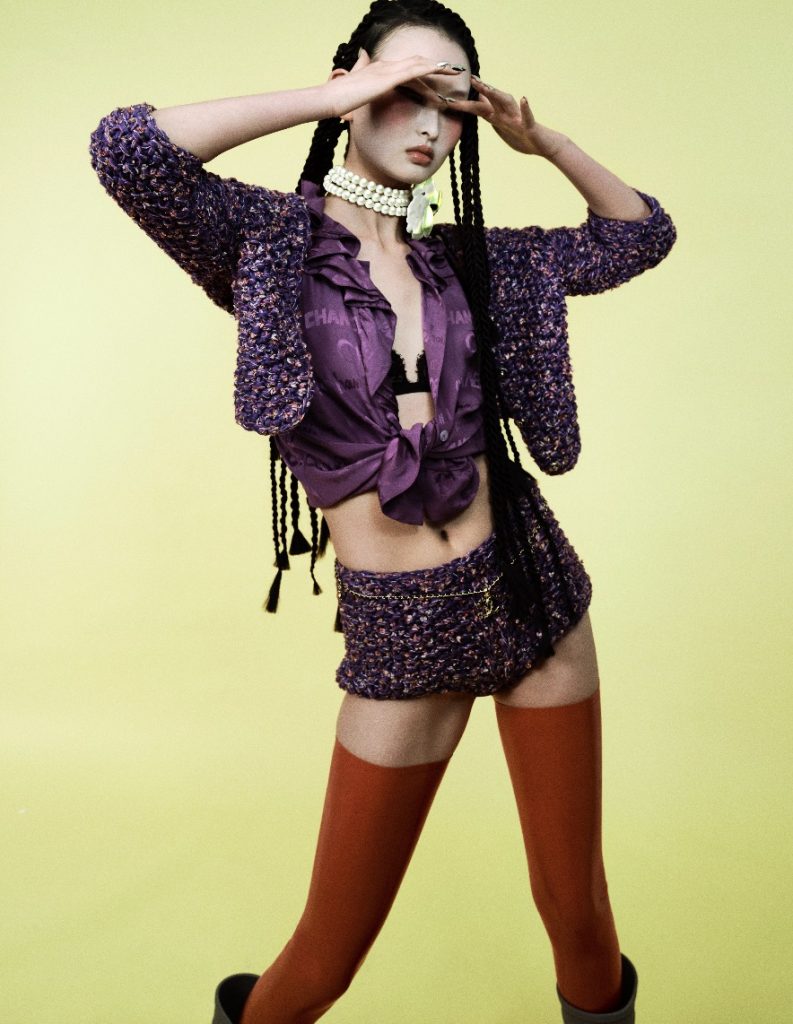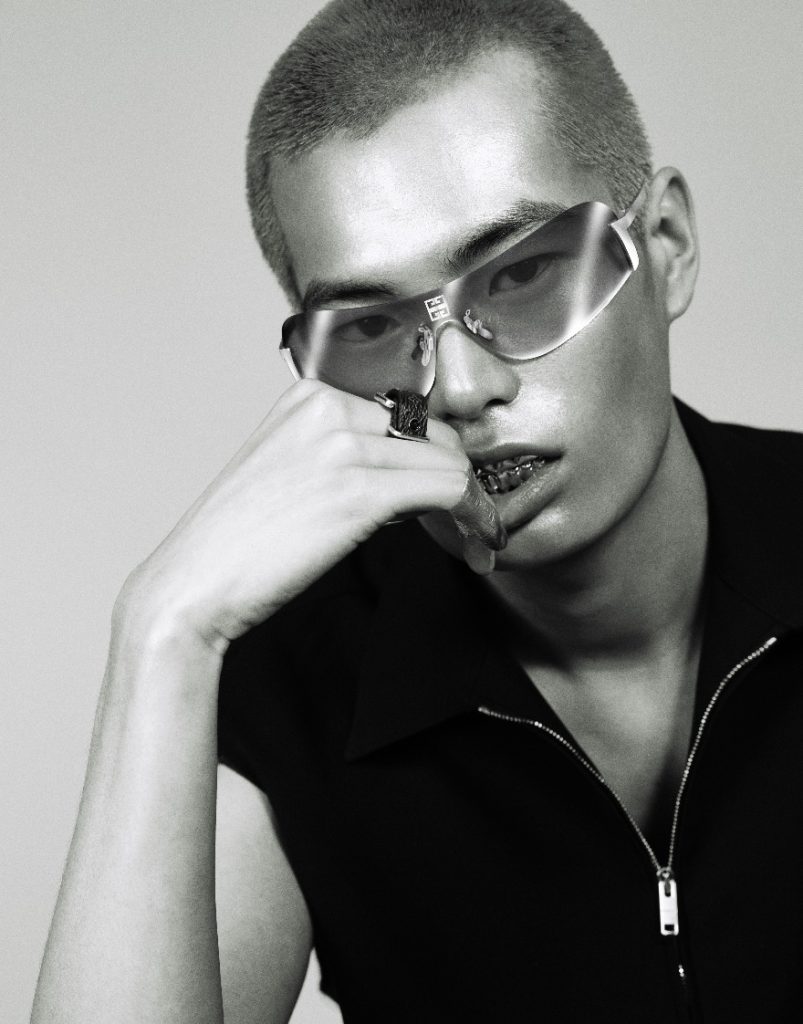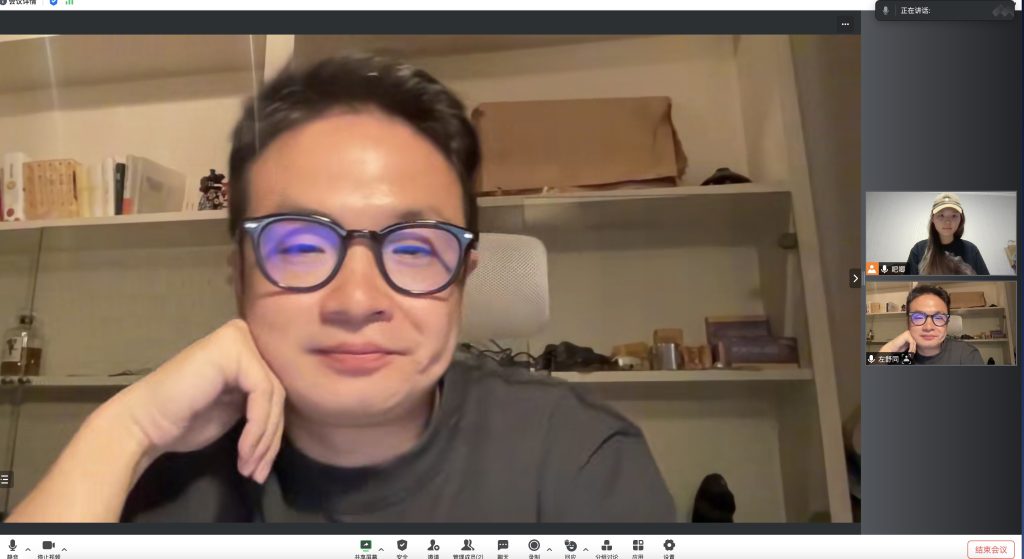The internet has gone from being a small group of people’s fringe hobby to a dominant force in our lives, and today online presence is more the rule than the exception. Contemporary fashion photographer Zuo Shutong is a Genz who grew up on the internet and his work explores how the internet has allowed us to start documenting our lives online. Exploring digital self-expression and online presence, looking at how technology has shaped the way we interact with the world around us.



Q:You were first recognised online on Weibo, Douban and other social media platforms. What attracted you to the online world?
A: I grew up at a pivotal moment in the Internet, and I was one of the first generation to be able to document my life online on platforms like Douban and Weibo using an early low-fidelity camera. It wasn’t something everyone was doing, it was something a small group of people were doing. The fact that you can find other people on the internet who share your interests and dress like you creates a form of community that I’m very interested in.
Q:What do you think is the difference between shaping personalities online and offline?
A: I think there will always be some form of performance happening, whether we’re online or offline. For example, when I’m talking to you, I’m going to act a little differently compared to when I’m talking to my mum or a friend. We’ve gradually developed different ways of dealing with people and the world, and although it’s subtle, we’re still influenced by social norms, guidelines, politeness, etc. But I think online, you try to control it in a different way. Online, you feel like you have all the control over your character and can manage it. However, whenever you put anything online, you are giving up control because you don’t know how people will perceive you. Online, everyone will see you in a different light, whereas when you communicate offline, you’re interacting with people on a one-to-one basis, and that communication process is less easy to explain.
One of the big phenomena online is that we look at ourselves while imagining how other people see us. When I create a post, I usually imagine someone who I think will read that post. When walking down the street, you know that people will notice you, but you also know that you don’t have to interact with those people. However, when posting online, you immediately realise that other people will see you will react to you, which is why I think we try to see ourselves through other people’s eyes so that we become this person who is looking at us, which means that, in a weird way, we’re performing for ourselves.
Q:Some people will post incredibly personal content online, even under their real names, writing about things they would never talk about in real life. Why do you think this is? What kind of comfort and solace do you think can be found on the internet?
A: I used to be like that myself, I didn’t talk about certain things in my life with people close to me, but I was very open about it on the internet. I don’t know why that is. I think that even if you use your real name, there’s still a certain level of anonymity because the people you interact with in real life don’t really follow you on these platforms. And, in general, when you’re online, you’re looking for some sense of community or people like you, and it may feel more comfortable to share with these people who you perceive to be similar to yourself.
Q:How do you view online relationships compared to offline relationships?
A: I think face-to-face relationships are in some ways more …… what you might call “holistic” than online relationships. But that’s not to say they’re more valuable. I think online relationships can translate into face-to-face relationships, and sometimes it’s a great way to find and meet other people, and it’s a great tool for artists. I’ve found partners online and we’ve worked remotely for a long time before meeting offline.
I like to use the word “watering”: I think all these parts of you need watering, and it’s crazy to expect one person or group of people to water all these parts of you. I think the internet and online communities can help nourish the parts of us that don’t get taken care of in other relationships.
Q:How do you think the Internet helps or hinders our search for “self”?
A: We are culturally very keen to learn about ourselves. For example, we love horoscopes, mbti, we love personalised skincare; we love testing. We even send our DNA to companies to find out where our family originated. Everything is very specialised and personalised in this day and age. I think trying to find out who we are is a very human thing to do. I think the internet has accelerated this impulse because you’re constantly looking at yourself, adjusting yourself, and expressing yourself over and over again.
Q:How do you see the relationship between the digital and the real self?
A: I think at one point you could say they were two different things, but the way technology has evolved has narrowed that difference; I don’t think there’s a clear distinction between IRL and URL anymore. It’s like, I live on my mobile phone now, I have it with me wherever I go and I can access it whenever I want. I never log out of anything anymore and people expect to be able to find you at all times. Some people only interact with you in real life, others only interact with you online. I think getting to know someone’s online self is a bit like getting to know how they want others to see them. I don’t think the online self is fake, but you can see how people want to be perceived, or what people’s deepest selves are. I’ve always felt that way.